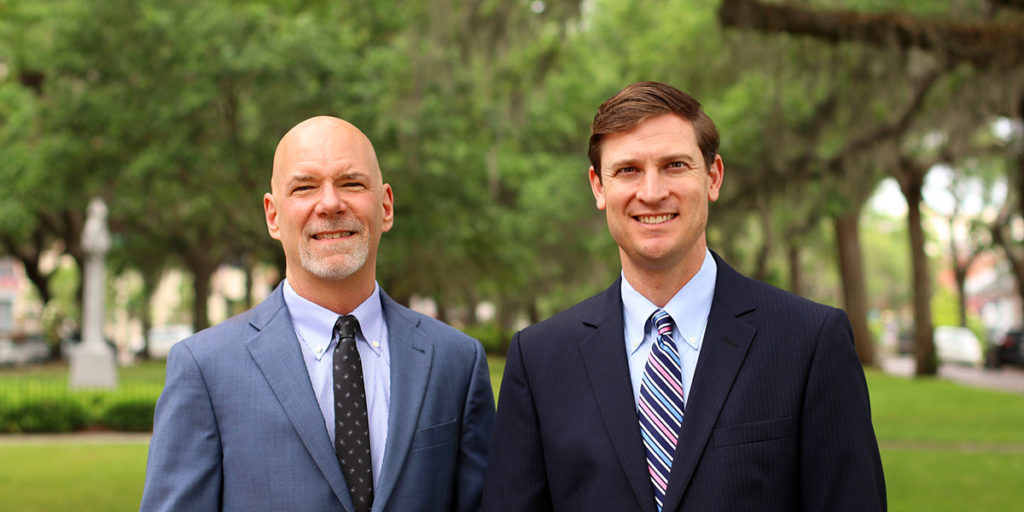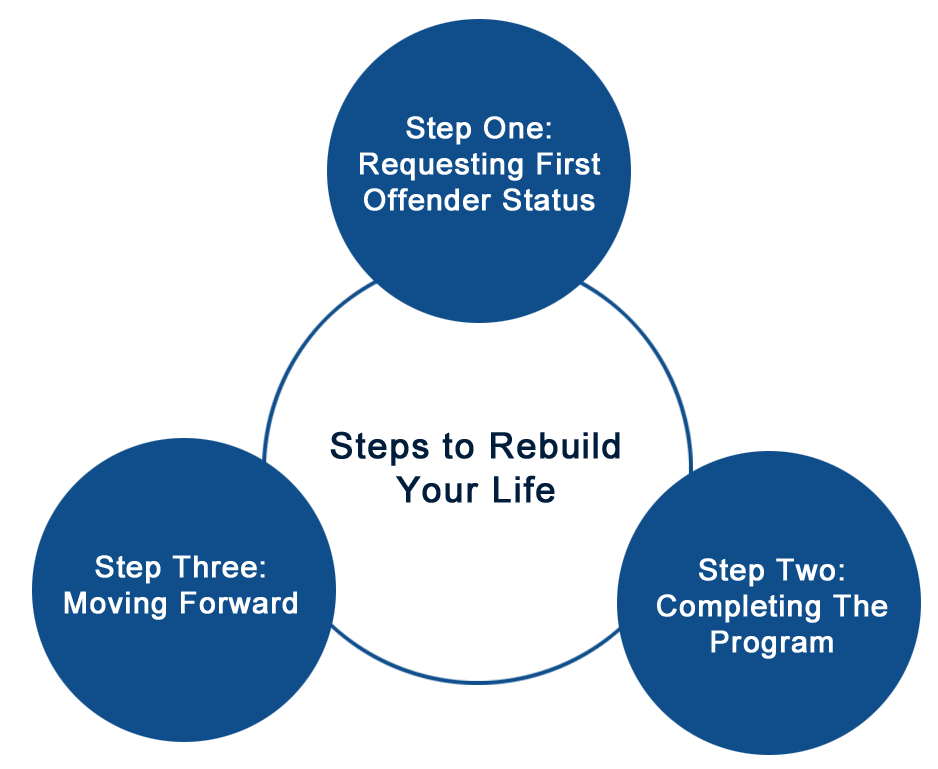
Georgia First Offender Act
Intended to offer first-time offenders an alternative to a traditional conviction, Georgia’s First Offender Act is an important piece of legislation. First, those who meet the program’s requirements offer a path toward rehabilitation that doesn’t leave a mark on the permanent criminal record of those who complete the program. It essentially works as follows:
For those who are being convicted of their first misdemeanor or felony, the court will begin by placing them on probation or imprisoning them without making a formal conviction on their record. The judge will review their criminal record, then if they meet the conditions the judge seeks, grant them alternative sentencing.
Those granted lenience under the First Offender Act must successfully complete their probation or sentence, without breaking the terms of their probation, being convicted of another crime, or being found ineligible.
Upon completing the terms of their sentence or probation, the case will be closed with no conviction on the defendant’s record, securing civil and Second Amendment rights that could otherwise be limited by a felony conviction. From there, a supervising agency such as the Department of Community Supervision will inform the court clerk to update the defendant’s record to reflect their exoneration.
It’s important to note that this program is not available to those convicted of violent or sexually exploitative crimes such as murder; armed robbery; rape; kidnapping; aggravated child molestation, sodomy, or sexual battery.
 Who is Eligible for Georgia’s First Offender Act?
Who is Eligible for Georgia’s First Offender Act?
There are certain criteria a candidate must meet to be eligible for the First Offender Act, including:
Lack of Priors: The candidate must not have any prior felony convictions on their criminal record, nor have already received First Offender treatment for a previous charge.
Not Charged with Serious Offense: As outlined above, there are numerous serious crimes that are violent or sexual in nature which will disqualify an individual. Similarly, those charges with offenses against public officials or law enforcement may be ineligible.
The Court Must Agree: Even those who meet the basic requirements for the First Offender Act may be denied based on the judge’s discretion. There are various factors the court will consider including the nature of the offense, the individual’s background and how they feel the individual may respond to rehabilitation.
Those Who Request It: In order to be considered for the First Offender Act, the individual or their attorney must make a formal request before entering a plea or before sentencing. Failure to enter a request on time could result in loss of eligibility and admission to the program cannot be applied retroactively if a conviction has already been reached by the court.
Those Who Plead Guilty and Serve Their Sentence: Even though no formal conviction will be recorded, the defendant must enter a plea of guilty or no contest to participate in the program. Once they have shown they can comply with the court’s conditions, be it probation, incarceration, community service, or other programs, they will be exonerated.
How It Works
Georgia’s First Offender Program has been used to give countless citizens a chance to rebuild their lives following a conviction, free of the lingering consequences that come from having a mark on their criminal record. Whether it’s something as simple as an assault charge stemming from a bar fight to something as complicated as an employee charged with felony theft by taking for embezzling thousands from an employer, each was able to serve their sentence and retain their rights and ability to gain employment free of a permanent mark.
Step One: Requesting First Offender Status
Before entering a plea, or during the sentencing portion of the proceedings, you or your attorney must request First Offender Status, which will then be reviewed by the judge. Your attorney can work with the judge and prosecution to highlight what makes you a good candidate for the program. If representing yourself, you must make sure you communicate your request clearly and on the record before entering a plea.
If the judge agrees to place you in the program, you will then be required to plead guilty or no contest to the charge. However, a conviction will not be entered into your permanent record at that time. Instead, the court will “withhold” the conviction while you complete the program.
Step Two: Completing The Program
At this point, the court will sentence you. Your sentence could come in the form of a prison sentence, community service, probation, or a combination of each. You may also be required to attend court-ordered treatment or anger management courses, plus consent to certain restrictions on your movement and activities. Your adherence to these restrictions will be supervised by an agency such as the Department of Community Supervision, with regular progress reviews and check-ins to ensure compliance.
If at any time you are found to be in violation of the terms set by the court, by committing a separate crime, breaking curfew, or failing to check in, the court can revoke your First Offender status. This will not only lead to a formal conviction appearing on your permanent criminal record, but it can also lead to further penalties and consequences.
Step Three: Moving Forward
If you are able to successfully complete the conditions of the First Offender Program, you will be considered “exonerated” in the eyes of the law. This means that a conviction will not show up on your criminal record, and your civil rights including voting rights and gun ownership will be restored.
The first step comes when the supervising agency informs the court via an Order of Discharge that you have satisfied the conditions of the program. At this point your court records will be updated to indicate that you were exonerated on the charge, and the charge will be sealed from the public.
It’s important to note that a First Offender status can show up on a background check if it is run while you’re still fulfilling the obligations of the program. Once you have satisfied those requirements, it will only appear on background checks run by certain employers and government agencies. Certain details of the incident, such as the arrest record, may still be visible to the public, but they can be sealed or restricted on request.
Ultimately, the goal of the First Offender Program is to give citizens who have run afoul of the law a chance to rebuild their lives following their sentencing. While it doesn’t apply to everyone, particularly those charged with heinous crimes, it can help those convicted move forward without the stigma of a conviction on their record. This not only leaves them free to vote, run for office, or exercise their Second Amendment rights, but it also frees them from the black mark a conviction can be on their permanent record. Whether securing a loan, finding housing, seeking a job or applying for scholarships, people with a felony conviction often find it difficult to move forward. With the First Offender Program, they can.

Schedule a Free Legal Consultation
If you are under investigation, have been formally accused or have been arrested for a crime, contact the Claiborne Firm. Whether it’s through the First Offender program or our ability to weave a tenacious defense for our clients, we do what it takes to secure the best outcome for your case. Call us today to schedule a free, no-obligation evaluation and then begin taking control of your life.
Call (912) 351-8775 or Schedule a Free Case Evaluation Online

